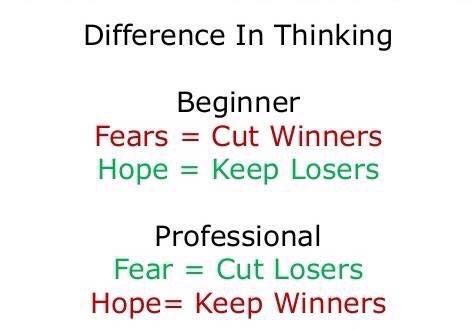 1) What goes up must come down and vice versa.
1) What goes up must come down and vice versa.
That’s Newton’s law, not the law of trading. And even if the market does eventully self-correct, you have no idea when it will happen. In short, there’s no point blowing up your account fighthing the tape.
2) You have to be smart to make money.
No, what you have to be is disciplined. If you want to be smart, write a book or teach at a university. If you want to make money, listen to what the market is telling you and trade to make money — not to be “right.”
3) Making money is hard.
Nope. Sorry. Making money is actually easy. Statistically, you’re going to do it about half the time. Keeping it, now that’s the hard part.
4) I have to have a high winning percentage to be profitable.
Not true. How often you are right on a trade is only half of the equation. The other half is how much do you make when you’re right and how much you lose when you’re wrong. You can remember that with this formula:
Probability (odds of it going up or down) x Magnitude (how much it goes up or down) = Profitability
5) To be successful, I have to trade without emotions.
That is both wrong and impossible. You are human so you have emotions. Emotions can be a powerful motivator to your trading.
When you feel angry or scared in trading, take that emotion and translate it into something more productive. For example, if you’re feeling angry because you just got run over by the market, view that anger as a reason to be more focused and disciplined in your entry and exit levels on the next trade.







